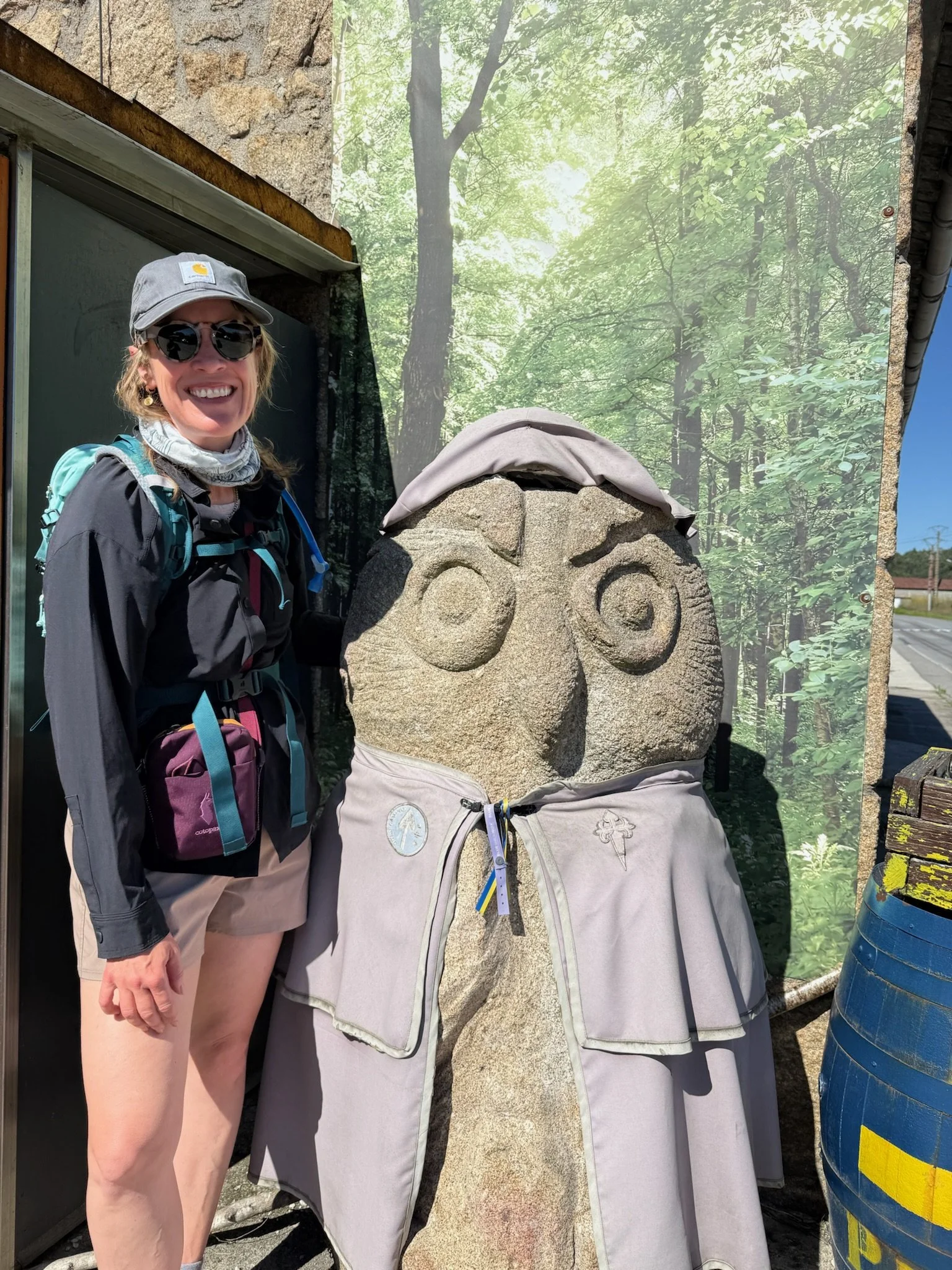What Walking the Camino in Spain Taught Me About Travel for Women Without Children
Reflections On Shared Identity & Intentional travel
for Women without Children
A Long-Planted Seed
I first learned about the Camino de Santiago in my early twenties while living in Barcelona after college. With no firm career plan and wanting to delay “adulting” a bit longer, I returned to Spain, a place I had briefly studied abroad during my junior year, to teach English. A Spanish family I was living with at the time told me about El Camino, a centuries-old pilgrimage route walked by thousands from all over the world for reasons both sacred and personal.
I tucked it away as something I’d do one day.
Years later, on a brief visit to Pamplona, I noticed a group of women with backpacks following yellow painted arrows out of town. I realized they were walking the Camino, and this time, the calling stirred more loudly.
A Milestone Year
As my 45th birthday approached, I felt almost intuitively that this was the year to finally walk. I didn’t know exactly why, but I had a sense there was something important about marking a midlife milestone in this specific way.
What I didn’t expect was that in the months between booking my flight to Spain and taking my first step on the Camino, I would launch Our Sister•Ship after an inspired conversation with a dear friend led to a clear vision for a travel-based community for women without children.
The parallels between my walk on the Camino and the heart behind Our Sister•Ship were deeper and more profound than I could have imagined.
The Shell, Symbolism & Shared Identity
On my first morning, I entered a stone church to receive my credencial, a pilgrim’s passport, and a small scallop shell to tie to my backpack. At the time, I didn’t fully understand its significance. But over the days to come, I would come to see that shell everywhere: carved into stone markers, painted on walls, worn proudly on backpacks and walking sticks.
The scallop shell is the enduring symbol of the Camino de Santiago. Its origins trace back centuries, often associated with St. James, whose remains are said to rest at the cathedral in Santiago. In medieval times, pilgrims carried the shell both as a practical tool for food and water, and later, as a token of proof that they had completed the journey.
Today, the shell becomes a visual language of shared identity. It doesn’t tell you someone’s backstory or why they’re walking. But it tells you that they are.
Across languages, nationalities, generations, beliefs, and personal reasons, people are walking together. They greet and wish one another well with the words “Buen Camino”, or good path. There’s a collective joy that’s palpable in the shared experience.
I met solo travelers, families, couples, and groups of longtime friends. Everyone was walking for different reasons, but we were all walking together.
It struck me how different this felt from a vacation or other types of travel I’ve done. Walking wasn’t about entertainment, checking off landmarks, or being in a breath-taking destination (even though the landscape was stunning!). It was a form of intentional travel, made more meaningful by the brief, but unifying, sense of shared identity with other travelers on the path.
For many people like me the destination was Santiago de Compostela, but for many the destination didn’t matter. It was about movement, presence, and meaning.
Shared identity & the power of Traveling with Purpose for women without Children
While walking the Camino is its own unique experience, what it stirred in me has profound relevance to the kind of intentional travel I envision for women without children.
I believe many childfree and childless women are longing for what the Camino symbolized: a space of belonging, shared identity, and the affirmation that we are not walking through this life alone.
It wasn’t just time away on a vacation, it was meaningful, purposeful time together.
Together with fellow journeyers who understand the complexity, the richness and sometimes, even the loneliness that can come from a woman’s life that doesn’t follow the traditional path to motherhood.
My dream is that Our Sister•Ship journeys offer women without children a place to rest in the comfort of knowing that, no matter their story to this moment, whether not having children was their choice or it wasn’t, whether it’s something they welcomed or didn’t, they aren’t alone.
And, that these journeys or trips might be a place to meet fellow “travelers” and recognize a shared thread of identity. Not a label that defines us, but something that connects us. A quiet signal, like the scallop shell, that says: there’s other women like you.
Lesson’s Learned
In its simplest form, walking the Camino taught me this:
There is meaning in walking together.
There is power in traveling with purpose.
And there is something undeniably sacred about journeying side by side.
Interested in Traveling with us? ✨ Join our mailing list! ✨ Or Checkout our upcoming trips
A group of women walking the Camino in Spain












